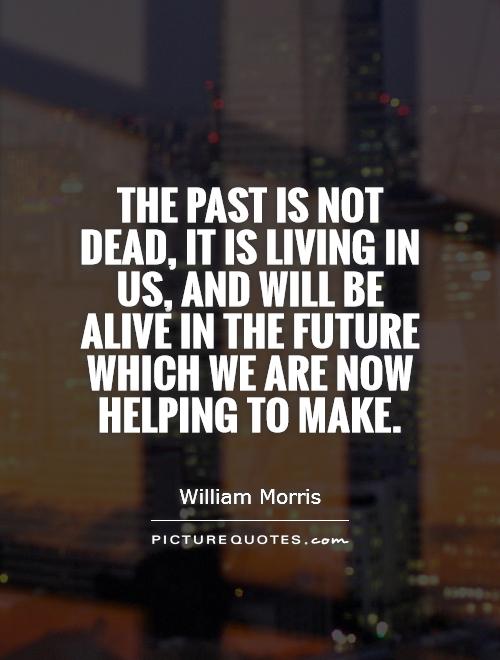The past is not dead, it is living in us, and will be alive in the future which we are now helping to make

The past is not dead, it is living in us, and will be alive in the future which we are now helping to make
William Morris, a prominent figure in the Arts and Crafts movement of the late 19th century, believed that the past is not dead, but rather lives on within us and shapes the future that we are actively creating. This sentiment is reflected in his work as a designer, writer, and social activist, as he sought to revive traditional craftsmanship and reconnect with the natural world in the face of industrialization and mass production.Morris was deeply influenced by the medieval period, which he saw as a time when art and craftsmanship were valued and celebrated. He believed that the beauty and integrity of handmade objects were essential to human well-being and that the industrial revolution had led to a loss of connection to the natural world and a degradation of the human spirit. In response, he founded the Morris, Marshall, Faulkner & Co. design firm, which produced high-quality, handcrafted goods in a variety of mediums, including textiles, wallpaper, furniture, and stained glass.
Morris's designs were inspired by nature, folklore, and the medieval aesthetic, and he sought to create objects that were both beautiful and functional. He believed that by embracing the past and incorporating traditional techniques and materials into his work, he could create a more harmonious and sustainable future. His designs were a rejection of the mass-produced, disposable goods of the industrial age and a celebration of the beauty and craftsmanship of the past.
In addition to his work as a designer, Morris was also a prolific writer and social activist. He was a vocal critic of capitalism and industrialization, and he advocated for a more equitable and sustainable society. He believed that by reconnecting with the past and valuing traditional craftsmanship, people could create a more just and fulfilling future.












 Friendship Quotes
Friendship Quotes Love Quotes
Love Quotes Life Quotes
Life Quotes Funny Quotes
Funny Quotes Motivational Quotes
Motivational Quotes Inspirational Quotes
Inspirational Quotes